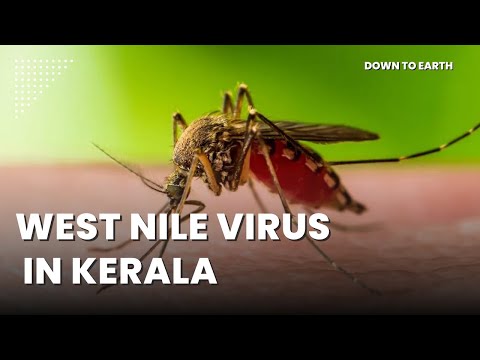No need for people to panic as Kerala has been experiencing the presence of the virus since 2011 and is completely prepared to cope with any critical situation, says state health minister
The West Nile virus (WNV), a mosquito-borne arbovirus of the family Flaviviridae, has become a cause of concern across Kerala, especially in Malappuram, Kozhikode and Thrissur districts.
The state has reported 12 confirmed and 4 suspected cases in the last week, triggering widespread panic. Kerala is now under high alert amid reports that WNV is spreading around the world and causing human infections on every continent except Antarctica.
West Nile virus is a single-stranded RNA virus transmitted mainly by mosquitoes, which shares similarities with viruses causing Japanese encephalitis and yellow fever. The virus is maintained in nature in a cycle involving transmission between birds and mosquitoes. It also infects humans, horses and other mammals.
The virus gets transmitted from person to person through the biting of infected Culex mosquitoes, which acquire the virus from infected birds (mostly migratory). The incubation period of the virus is between three and fourteen days.
The disease is asymptomatic in 80 per cent of the infected people. About 1 in 5 people who are infected develop a fever with other symptoms such as headache, body aches, joint pains, vomiting, diarrhoea, or rash.
The scariest part of the disease is that no vaccination specific to WNV is available yet. The only treatments administered to neuroinvasive WNV sufferers are supportive remedies. The virus is typically lethal in those who have comorbidities as well as immunocompromised individuals, according to TS Anish, a public health expert and the nodal officer for the Kerala Disaster Management Authority.
In most countries, the peak of WNV infections correlates with the time of year when mosquito vectors are at their most active and the temperature of the surrounding environment is high enough for the virus to multiply.
Recent climate change and raging floods have possibly resulted in copious vector-borne infectious diseases in the state, according to a 2022 study in the Annals of Medicine and Surgery.
Kerala health minister Veena George told Down To Earth that a state-level mechanism is already in place to advise doctors, nurses and paramedical staff on how to treat patients with the disease and administer medicines.
She also said that there is no need for people to panic because the state has been experiencing the presence of the virus since 2011 and is completely prepared to cope with any critical situation.
We are a voice to you; you have been a support to us. Together we build journalism that is independent, credible and fearless. You can further help us by making a donation. This will mean a lot for our ability to bring you news, perspectives and analysis from the ground so that we can make change together.


















































